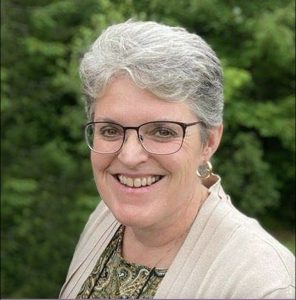Inside Out – Biblical Worldview – Barna Research – 11/01/23
Podcast: Play in new window | Download (Duration: 16:34 — 22.8MB)
Subscribe: Apple Podcasts | Android | Email | RSS
We develop our way of looking at the world—our worldview—before we turn 13.
Remarkably, new research finds that fewer than one in ten parents think through how to guide their children spiritually during those critical years.
Dr. George Barna directs the Cultural Research Center at Arizona Christian University and includes these findings in his new book Raising Spiritual Champions: Nurturing Your Child’s Heart, Mind and Soul. “Everybody has a worldview. You need a worldview to get through the day,” Barna says. “So children are going to develop a worldview whether their parents are involved in it or not. That is a vacuum that has to be filled.”
If parents don’t work toward developing their children’s spiritual life, other worldviews will fill that void. “Without their parents being there to help guide them, they’re just doing the best they can to make sense of it all.” Barna offers ways to help parents to live out their roles as disciple-makers. “The first of those is to recognize that God gave them these children to raise up to be disciples,” he says. So it’s important to be intentional and not outsource this critical part of parenting.
“They have to have not only a commitment, but a plan to take in these children during those formative 12 years, and do everything they can to lead them down the right path.” That begins by knowing what beliefs you as a parent want your children to embrace. “Why? Because we do what we believe. In essence, your worldview is based on your beliefs, that then gets translated into behavior,” he says.
 “The only way that you can be Christlike is to think like Jesus so that you can live like Jesus.”
“The only way that you can be Christlike is to think like Jesus so that you can live like Jesus.”
Children see when stated beliefs are not reflected in behavior. “Kids don’t trust their parents anymore because their parents say one thing and do another. You want to get to your kids? Model the beliefs that you’re trying to teach them. When they see you live it out, then they’re going to say, ‘Okay, I see it. It works. My parents believe it. I’m going to run with it.’”
Underlying all of this, Dr. George Barna recommends that Christian parents bear in mind the context of all of their parenting. “Parenting is a vital battle in the spiritual war in which we live,” he says. “We have to be aware of the nature of that battle if we’re going to fight it well.”
Follow-up links for more information and inspiration:
- Specific recommendations and insights for parents and families about building their faith in young, preteen children
- How deep and widespread the problem is: too many children are not being nurtured in how to understand and practice their faith
- Solutions in George Barna’s new book Raising Spiritual Champions — his 60th!
- A Biblical worldview makes cultural transformation possible
- Learn more about the work of the Cultural Research Center here.

















 Jimmy Dodd and Sally Dodd are coauthors of the new children’s prayer guide The Magnificent Names of Jesus. “Just to think about the names of Jesus and just actually remember those can have an impact, I think, upon the family, upon the church, upon our community,” Dodd says. That’s because knowing Jesus’ names help us know His character.
Jimmy Dodd and Sally Dodd are coauthors of the new children’s prayer guide The Magnificent Names of Jesus. “Just to think about the names of Jesus and just actually remember those can have an impact, I think, upon the family, upon the church, upon our community,” Dodd says. That’s because knowing Jesus’ names help us know His character. 

 They also displace time children need for developing social and life skills. “Screens, and especially video games, will detach our kids from their family,” she adds. “So it’s the saddest, most lasting part of the story: the game becomes their family and you lose your kids, and that’s what a lot of families are struggling with today.”
They also displace time children need for developing social and life skills. “Screens, and especially video games, will detach our kids from their family,” she adds. “So it’s the saddest, most lasting part of the story: the game becomes their family and you lose your kids, and that’s what a lot of families are struggling with today.”
